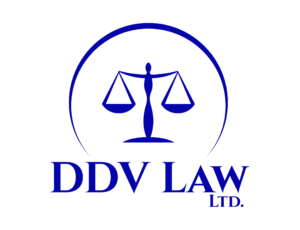Small businesses can be structured in many ways, from sole proprietorships to partnerships to corporations. A company’s name often ends with LLC, which stands for limited liability company. Forming and operating an LLC is easy.
Whether you do contract work, have a startup, or have an already established small business, you may want the help of a business law attorney to talk about the best structure for your company. Forming an LLC could be a good option for several reasons.
How Does an LLC Work?
An LLC can be owned by one member or many members. The members can own equal shares in the LLC, contribute ideas about the company’s operation, and divide responsibilities between members in different ways. Some LLCs are member-managed, and others are manager-managed LLCs.
Either way, the “limited liability” means that the owners of the LLC are not personally liable for the LLC’s debts or claims against the company. For example, creditors, such as lenders, suppliers, and landlords, cannot legally try to take an LLC member’s personal possessions, such as their car or house. Only the LLC’s business assets are vulnerable to creditors.
Unlike corporations, members of LLCs are not employees of their companies; they are considered self-employed business owners. Additionally, LLCs are not regarded as separate from their owners for tax purposes. The IRS looks at LLCs as “pass-through entities,” much like partnerships and sole proprietorships. Income passes through an LLC to the LLC’s members, who then report their share of any profits or losses on their individual income tax returns.
What Are the Benefits and Disadvantages of LLCs?
There are a number of reasons to form an LLC for your business. One of the most significant, as mentioned above, is the liability protection that they offer. Though not every LLC has an employer identification number (EIN), obtaining one enables you to use it instead of your social security number when working with clients and filing taxes. This provides an additional layer of privacy and separation from your business.
If you are operating an unregistered business, there is nothing stopping someone else from using your business name for their business, even if you are both operating in the same city. However, if you register your LLC with the office of the secretary of state for the state you are working in, then you have that name secured. To protect your business name throughout the country, you will need to register your business name with the United States Trademark and Patent Office.
Another advantage to using an LLC is that it gives you and your business credibility. Potential clients will be more comfortable when they hire you, knowing that you have put in the time and effort to establish yourself as a valid company. The same is true for creating a website or social media profiles for your business. Even if you don’t think you will need it to conduct business, people use them to evaluate your credibility.
Forming and operating an LLC generally costs more than a sole proprietorship or a partnership. To create an LLC, you need to register it with your state and pay filing fees. After formation, LLCs need to pay fees and taxes annually, which vary from state to state. If you are looking to receive capital from outside investors, a corporation may be a better option than a limited liability company.
Is Forming an LLC a Good Option for Your Business?
If you want to start a business or make your existing small business appear more established while reducing your liability, an LLC is a good option. An experienced attorney can answer questions related to your unique situation and help you set up an LLC or other entity for your business.
This article offers a summary of aspects of business law and business planning. It is not legal advice, and it does not create an attorney-client relationship. For legal advice, you should contact an attorney.
When you are ready to take the next step, contact our Chicago area offices by calling 312-878-0155. We have three convenient locations to assist you.

